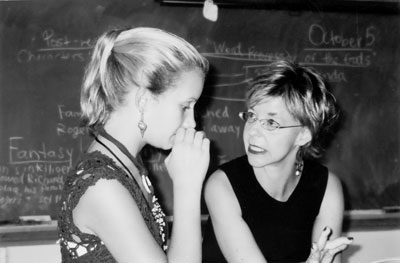All Nonfiction
- Bullying
- Books
- Academic
- Author Interviews
- Celebrity interviews
- College Articles
- College Essays
- Educator of the Year
- Heroes
- Interviews
- Memoir
- Personal Experience
- Sports
- Travel & Culture
All Opinions
- Bullying
- Current Events / Politics
- Discrimination
- Drugs / Alcohol / Smoking
- Entertainment / Celebrities
- Environment
- Love / Relationships
- Movies / Music / TV
- Pop Culture / Trends
- School / College
- Social Issues / Civics
- Spirituality / Religion
- Sports / Hobbies
All Hot Topics
- Bullying
- Community Service
- Environment
- Health
- Letters to the Editor
- Pride & Prejudice
- What Matters
- Back
Summer Guide
- Program Links
- Program Reviews
- Back
College Guide
- College Links
- College Reviews
- College Essays
- College Articles
- Back
When Silence Is Injustice MAG
Speak up, I told myself, but I couldn’t. I closed my eyes and took deep, slow breaths, my chest heaving. I stared down at my hands where they rested in my lap, the calluses and chipped, uneven fingernails digging into my skin, leaving little red marks but no blood. Speak up! I repeated, but my limbs were dead weight, my body refusing to move.
For longer than I can remember, I have spent every Friday night in a classroom from 7 to 9 p.m. learning Chinese. Friday night has always meant homework and tests. One year, though, was very different. Our teacher that year was a little unusual. For one thing, we didn’t have a textbook. She never gave us homework, tests, or even difficult classwork. For another thing, she always arrived about five minutes late.
At the beginning of class, she would sometimes ask us questions like, “What did you do today?” to practice spontaneous speech. Then she would say, “Let’s have one of the girls go first. In my experience, girls are always smarter than boys.” The first time she did this, everyone was shocked, but it happened again and again, and eventually we got used to it.
One day in class, a couple of kids were messing around and not paying attention. Our teacher told them off a few times, but they wouldn’t listen. She started lecturing us about behavior. “You’re so lucky,” she told us. “You have good educations, homes, and opportunities. Your parents care enough about your future to send you to Chinese school. Not everyone gets those kinds of privileges.”
We all mechanically nodded our heads. Most of us grew up hearing these kinds of lectures at home, so this particular speech didn’t affect us much. However, the teacher continued, “Black kids, you know, they don’t get good education. They grow up in poverty. Their parents don’t care about their future.”
I looked around at the other students. Nobody seemed to be reacting to what she’d said. Nobody was protesting. I stared at the little crescent marks on the side of my hand and wished they would hurt more. Speak up, I told myself, but my mouth seemed glued shut.
My teacher was still talking. “Black parents work late. They aren’t home a lot to see their kids. They don’t know how to help them with homework. You guys are so lucky your parents aren’t like that. Blacks are trapped in this endless cycle of ignorance and poverty. You guys should be thankful you have such good lives.”
Chinese culture strongly emphasizes respect. We grow up learning not to argue with adults, not to fight tradition, not to be rude to our teachers – in short, contradicting my teacher, an elder, a superior, and an instructor, would go against everything that had been ingrained in me and my classmates all our lives.
Habit is a difficult thing to overcome, and though I knew I should stand up for a group of people who were unfairly scapegoated too often, who weren’t there to defend themselves, I sat like a statue as her ugly words washed over me.
I think one of the hardest things I’ve ever learned is to resist. My entire life, I was taught to do what I was told. Then I realized that some of the people I’d been taught to listen to and respect weren’t worthy of that respect. I learned my lesson that day – not because I spoke up in the face of injustice but because I failed to. Sitting in the car on the way home, I promised myself that next time, I would do what was right.

Similar Articles
JOIN THE DISCUSSION
This article has 0 comments.

Emma Shedden grew up in a bilingual family in suburban Michigan. She hopes that this piece will encourage others to stand up for the things they believe in.